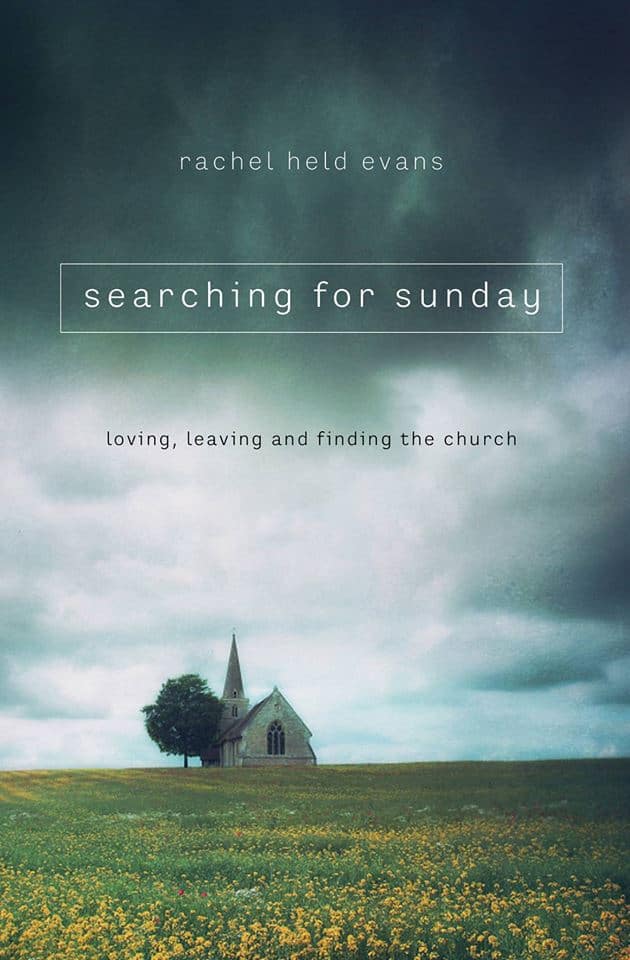 I’ve read Rachel’s new book Searching for Sunday: Loving, Leaving, and Finding the Church
I’ve read Rachel’s new book Searching for Sunday: Loving, Leaving, and Finding the Church and recently heard her speak for almost 2 hours on it in nearby Lancaster–and even with my toddler-like attention span I hardly squirmed and never once reached for my iPhone.
I’m not going to write a review. There are enough out there, and more to come, I’m sure.
I’ll just say I love the book because I can give it to people who are struggling with their faith, with meaning, with church, because Rachel says things like this (paragraph breaks my own):
My mother used to tell me that we weren’t the type of people to air out our dirty laundry. What she meant was good Southern girls didn’t go around talking about their troubles or divulging their secrets. (I can only assume it was by some divine corrective that their daughter turned out to be a blogger.)
But this is a cultural idiom, not a Christian one.
We Christian don’t get to send our lives through the rinse cycle before showing up to church. We come as we are–no hiding, no acting, no fear.
We come with our materialism, our pride, our petty grievances against our neighbors, our hypocritical disdain for those judgmental people in the church next door.
We come with our fear of death, our desperation to be loved, our troubled marriages, our persistent doubts, our preoccupation with status and image.
We come with our addictions–to substances, to work, to affirmation, to control, to food.
We come with our differnces, be they political, theological, racial, or socioeconomic. We come in search of sanctuary, a safe place to shed the masks and exhale.
We come to air our dirty laundry before God and everybody because when we do it together we don’t have to be afraid. (pp. 70-71)
I teach college students and I raised three of them. I can tell you what I hear a lot: church is fake, and if church is fake, God is fake, and life is too short for fake, so no thanks.
I’ve handed this book so far to 4 people who needed to hear that they are understood, and to watch someone model the very path they are on and yet still talk about church in a hopeful way. I’m glad this book exists.
Rachel is able to speak to people like that because she went through that process herself–not to mention she is a great writer, with a healthy tone of self-deprication and humility in all of it. She sees herself in this list; I see myself, too.
Some who are critical of Rachel’s criticisms of the status quo write or read books I would never and could never give to the people Rachel is speaking to here–a post-Christian world that neither assumes the validity of nor tolerates for long the American Evangelical/Fundamentalist subculture.
This book is a “one body, many members” moment, not a “let’s get her” feeding frenzy. Holster your weapons. Who knows? You might find yourself one day scrambling to give a copy of this book to someone close to you. You might even need it yourself.

